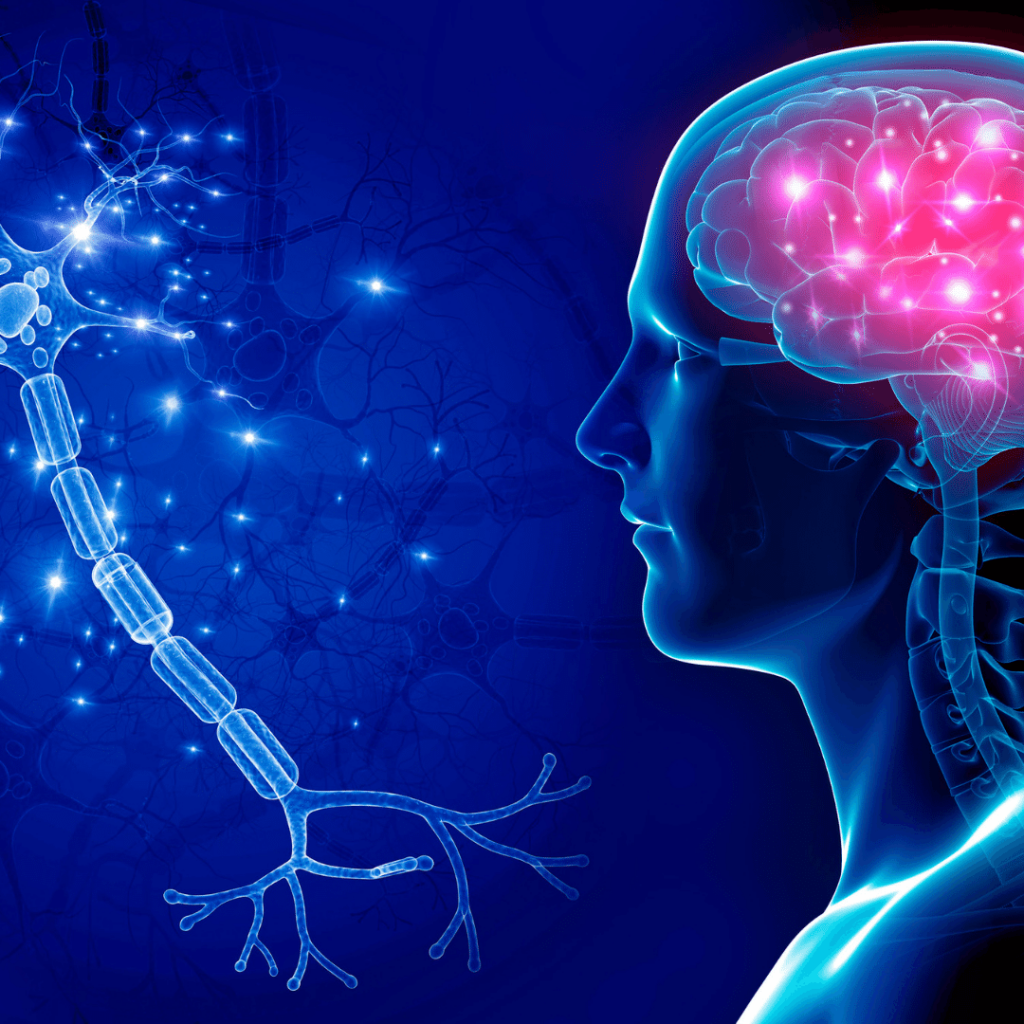It’s normal and natural for fatigue to progress during your workout. Each mile you run becomes more difficult than the last. Every set you lift becomes progressively more challenging.
You welcome and recognize this fatigue as a sign your body is getting a good workout. It pushes you to train harder and run further to surpass the goals you’ve set for yourself.
However, if you’re regularly overtraining to the point of exhaustion, you can actually cause your brain to become chronically tired.
Central Nervous System Fatigue, or CNS Fatigue, is a real thing, and it can have a major impact on how you perform both in and out of the gym. CNS Fatigue is characterized by decreasing function in the part of your brain that controls voluntary movement.
While some try to deny that it actually exists, many dedicated athletes know that it does because they struggle with its effects during intense or prolonged training.
In this guide, we’ll explain what CNS Fatigue is, how to know you have it, and what you can do to overcome it.
The Role of the Central Nervous System

Your central nervous system, or CNS, is responsible for controlling most of your mental and physical functions. It is made up of your brain and spinal cord.
Your brain interprets what you taste, smell, feel, see, and hear. Then, the spinal cord sends messages about those experiences to the rest of your body, causing the appropriate reaction.
General awareness, speech, and memory are all accomplished by a properly functioning central nervous system. Your CNS also allows you to perform physical movements on command, such as lifting, squatting, and running.
To be even more exact, the motor cortex of your brain is the part that plans and executes voluntary motion. It’s located in the frontal lobe of your brain and has multiple sections to control various responses and movements.
The primary motor cortex is the specific area of the motor cortex that controls different body parts in sequence. It helps you learn new physical skills and learn how to complete them more quickly and efficiently as you repeat the task.
What is CNS fatigue?

Central Nervous System Fatigue, or CNS Fatigue, happens when you consistently overtrain without adequate recovery time between workouts. This causes the central nervous system to become chronically fatigued and therefore inefficient.
Chronic overtraining isn’t the only thing that contributes to CNS Fatigue. Lack of sleep and poor nutrition are also major contributing factors. The condition is most common among weightlifters, but any high-intensity athlete may experience it.
Since everyone has a different capacity for exercise, some athletes can work out longer and harder before they experience CNS Fatigue.
CNS Fatigue and Overtraining Are Not the Same Thing

Although some people try to lump CNS Fatigue and overtraining into the same category, there are some significant differences. CNS Fatigue is the result of chronic overtraining and is much more severe and difficult to overcome.
On the other hand, overtraining is the typical side effect of a new or more rigorous fitness routine. It typically remedies itself after a day or two of rest and proper nutrition.
The symptoms of CNS Fatigue are:
- Joint aches
- Low energy
- Insomnia and poor sleep quality
- Flu-like symptoms
- Forgetfulness and lack of focus
- Headaches
- Poor skill execution of things you can normally do without an issue
- Lack of motivation
- Fever
The symptoms of overtraining are:
- Prolonged or extreme muscle fatigue and soreness
- Poor workout performance
- Frequent injury
- Slow recovery after illness or injury
- Craving more calories
- Feeling sluggish, even after you just woke up
- Weak immune system
Peripheral Fatigue vs CNS Fatigue: What’s the difference?
To put it simply, peripheral fatigue is localized to the muscle or muscles you’re working. As the muscles get tired during exercise, metabolites accumulate. This metabolite accumulation reduces strength in the working muscle.
That means you have to work harder to expand and contract the muscle(s). The muscles also need more oxygen to keep going, which is why you become short of breath during exercise.
This effect is not the same as CNS fatigue. CNS Fatigue is not the normal feeling of exhaustion that happens during and immediately following a workout.
CNS Fatigue is the inability to control, or activate, your muscles due to decreased brain function caused by chronic fatigue.
How CNS Fatigue Affects Your Performance and Everyday Life

CNS Fatigue is caused by high-intensity, prolonged exercise that occurs too often or too soon, without adequate recovery from the previous workout. This causes the motor neurons in your brain to fire too often and too quickly, leading to brain fatigue.
In other words, the neurons in your brain can’t fire efficiently, so the body isn’t receiving messages from the brain quickly when it’s time to perform a movement. That means you can’t move, or exercise, at the same rate you did before.
CNS Fatigue also slows down muscle growth. You may notice that you’re not building muscle as quickly as you used to and that the training program you previously followed is no longer delivering results.
This may also explain why exercises done at the end of a workout aren’t as effective as those done at the beginning. Since the effects of CNS Fatigue accumulate during the workout, it makes sense that those performed at the end won’t produce the same results.
Unlike peripheral fatigue, which goes away after a period of rest, CNS Fatigue symptoms are persistent. They not only interfere with your workout routine but also with your daily activities.
For example, CNS Fatigue leads to anxiety, irritability, and other emotional issues. It disrupts your sleep patterns and may lead to increased or decreased appetite. All of these things exacerbate existing emotional issues you’re already dealing with due to the CNS Fatigue.
CNS Fatigue can also take a toll on your immune system. You will likely feel sluggish and get sick more often because your body will have to work harder to fight off germs and viruses.
4 Ways to Overcome CNS Fatigue

Here’s how to overcome CNS Fatigue.
1. Rest, Recover, and Change the Way You Workout
The most important factors in overcoming CNS Fatigue are rest and recovery. Sleep is essential for repair and muscle growth, which ensures that you continue to see results from your workouts.
Not only do you need to ensure that you’re getting enough sleep every night, but you also need to prioritize adequate recovery time between workouts. High-intensity workouts must always be balanced with enough recovery days.
Since fatigue is more likely to occur with endurance and long-distance exercise, you should also change the way you work out. Make it your goal to increase your heart rate without prolonged exercise.
Consider doing more low-intensity workouts, such as cycling or swimming for shorter periods of time. On strength training days, work alternating muscle groups on different days.
Repeating the same low-intensity exercise on alternate days can retrain your brain to work out without overfiring and becoming excessively tired.
2. Reduce Stress
Finding ways to reduce and cope with stress in your daily life is crucial for overcoming CNS Fatigue. Free up more time for rest by avoiding overcommitting. Be mindful about how you spend your free time to give your brain a chance to relax and stop overfiring.
It’s important to realize that CNS Fatigue is caused by chronic stress on the mind and body. You must reduce that stress to overcome it.
3. Prioritize Good Nutrition
Good nutrition is crucial for overcoming CNS Fatigue and the neurotransmitter imbalances associated with it. Proper nutrition will help to get your dopamine and serotonin levels back to where they should be.
In addition to eating a clean, high-protein diet, take a high-quality multivitamin every day to fill in any nutritional gaps. Be sure to include plenty of omega-3s and amino acids to assist with muscle recovery and inflammation.
4. Hydrate, hydrate, hydrate
Hydration is essential for recovery, so drink lots of water and avoid alcohol and caffeine. They are both diuretics and will only contribute to dehydration and exacerbate your CNS Fatigue symptoms.
What Not to Do When You’re Suffering from CNS Fatigue
If you’re suffering from CNS fatigue, do not continue to do prolonged, high intensity training. That’s just asking for an injury.
If you’re too tired to train, listen to your body. Don’t try to cram extra calories or take a pre-workout to get you through your normal workout regimen.
Remember, it’s not just about a lack of fuel. Hormones, neurotransmitters, tissue health, and nutrition are all a part of the equation, so there is no quick fix.
FAQs About CNS Fatigue
Here are some of the most frequently asked questions about Central Nervous System Fatigue.
· What does CNS fatigue feel like?
When you are suffering from CNS fatigue, you feel like you’re physically capable of completing a task, but your muscles just won’t engage properly. It’s your body’s way of telling you it’s time to stop what you’re doing and let it recover.
· How long does CNS fatigue last?
It can take days or weeks to overcome CNS fatigue, depending on what changes you make and how severe the condition is. For optimum recovery times, remember to get extra rest, hydrate, and provide your body with plenty of protein and the best nutrition possible.
· How do you treat CNS fatigue?
The best way to treat CNS fatigue is with proper recovery times between workouts, plenty of sleep, hydration, and good nutrition.
· How do you measure CNS fatigue?
The best way to measure CNS fatigue is to assess your grip strength. You’ll need to start by obtaining a baseline measurement after several days of no intense exercise.
The easiest way to measure your grip strength is to hang from a bar. Time how long it takes for your grip to give out, causing you to drop from the bar. That time will be your grip strength measurement for future comparison.
During a workout, you’ll notice that your grip strength gradually decreases. As long as it returns to normal before your next workout, you’re good to go. If it doesn’t, you’re probably dealing with CNS fatigue, and you need to pay more attention to proper recovery between workouts as outlined above.
The Bottom Line: Rest and Recovery Are the Best Ways to Avoid CNS Fatigue
If you only take one thing away from this article, it should be that you need to prioritize rest and recovery to avoid CNS fatigue. There is no quick fix, such as binging calories or loading up on pre-workouts.
CNS fatigue is the body’s natural defense mechanism for avoiding injury. It’s your body’s way of telling you to stop what you’re doing and take a break. Don’t ignore it or you’re likely to end up with an injury that will keep you out of the gym for weeks or longer.

